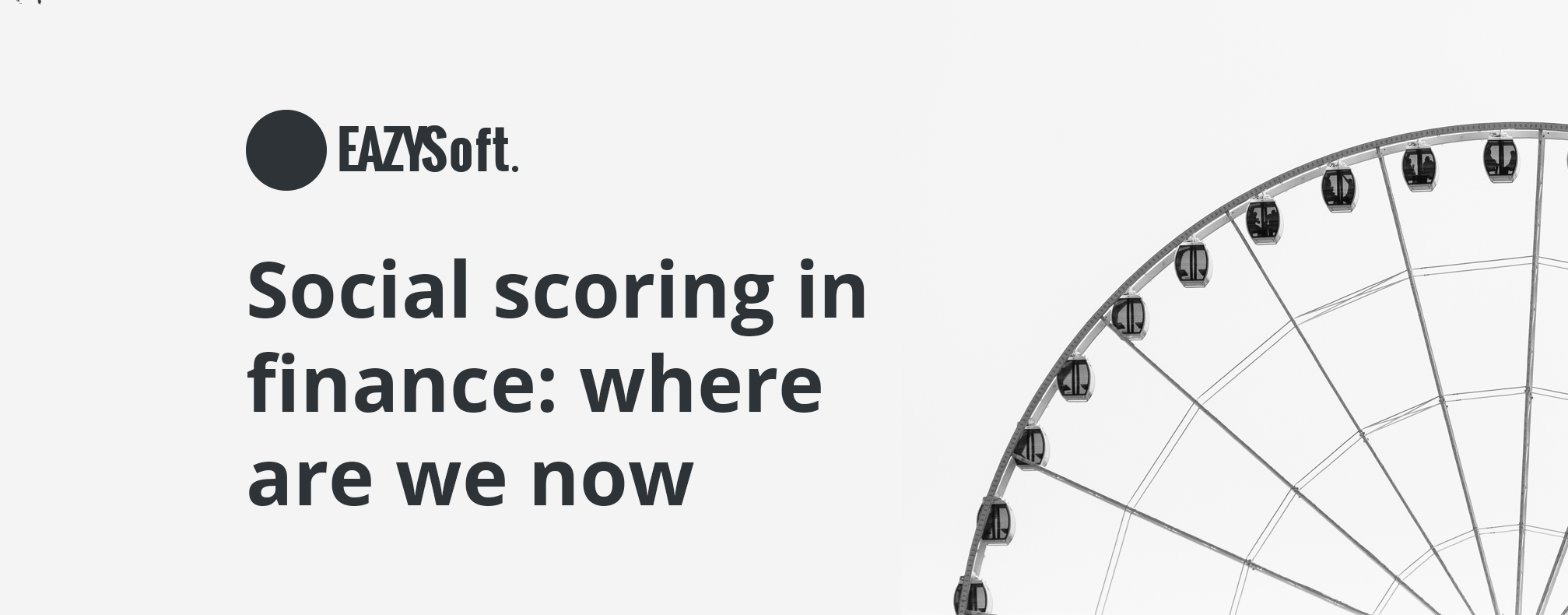
Social scoring in finance: where are we now
The Social Credit System is a mechanism that uses big data analysis technology is intended to standardize the assessment of people and business’s economic and social reputation, or ‘credit’.
Scores are given for everything, such as: being nice, well dressed, punctual and replying respectively. If you misbehave, you are punished by getting a lower rate, which decreases your score. While it’s in terms of appropriate level – the man might relay on various benefits like discounts, shorter queues, and better service. When the grade is unsatisfied – the man got penalties.
Sounds incredible? Well, since 2014 in China there is a national reputation system being developed by the government. It’s still in development but planned to apply all basic structures till 2020.
However, some elements of social scoring are widely spread all over the world. Mostly – in financial and advertising industries.
Your digital footprint in social scoring
Nowadays practicing getting user data is widely spread. Facebook, YouTube, Twitter, Skype – companies like Cambridge Analytica, might download everything you have ever done, liked, or paid for online. Received information might be easily used for building the perfect marketing message for everyone. That is why the digital platforms are the biggest advertising players.
So as advertisers – financiers are also hungry for data. It is not just about the combing of your profiles by social insurance institutions by hunting on your holiday pictures when you are reported to be on sick leave. It is also the means of banks, insurers or payday loans. Your online behavior can tell underwriters much about how trustworthy you are.
Ambiguous phenomenon of social scoring
Just imagine combining all of your scores from eBay, Facebook, Instagram, some of PC and mobile apps with your single individual personal score that would determine your job, available mortgage rates, or schools for your children.
Movie display negative point of view on social scoring. But is it so?
Three major minuses of social scoring are:
- First things first – the reduction of private space and intrusion to a sphere of personal secrets.
- Bad corresponding with irrational humanity traits. Sometimes people have to break the rules in order to make the right things.
- Unavailability of providing total secure to the data or system. In application to social scoring, it means that some skilled hackers or criminals with access to such a system might easily destroy anyone’s life.
Three major benefits of social scoring:
- Saving time in making choices. No need in spending personal time for gathering information about someone or something – just look into the score list and decide instead of learning the topic.
- More personalized approach to each participant of social scoring. For sellers, drivers, waiters and many other – it’s much easier to do their best when they know what do you want, what do you like or dislike.
- Equal circumstances for different people. That means, that, for example, a man with no bank account still might get a loan, based on his or her social score.
Social scoring has some strong benefits, so as risks. That’s why the main question is about proper using of its possibilities and the following reaction. The only practical result will give us the answer – should we use scoring or ban it. So, after the 2020th – Chinese experiment might help us to find the answer based on the applied approach.
